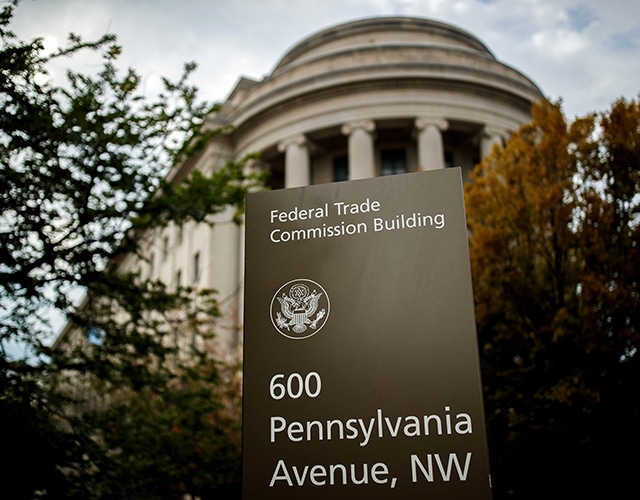The Federal Trade Commission says employers can no longer, in most cases, stop their employees from going to work for rival companies.
The sweeping action, on April 23, could help create jobs, raise wages and increase competition among businesses, the agency said. But the action is all but certain to be challenged in court by businesses that say they need to protect trade secrets and confidential information.
The move bars contracts known as noncompetes, which prevent workers from leaving for a competitor for a certain amount of time, in most circumstances. Noncompetes cover about 30 million U.S. workers, the trade commission said, in a variety of jobs that include TV news producers, hairdressers, corporate executives and computer engineers.
The commission has said the proposal would raise wages by forcing companies to compete harder for talent. It was approved in a 3-2 vote. Commissioners Melissa Holyoak and Andrew N. Ferguson, both Republicans, voted against the measure.
“The FTC’s final rule to ban noncompetes will ensure Americans have the freedom to pursue a new job, start a new business or bring a new idea to market,” the commission’s chair, Lina M. Khan, said in a statement. She estimated the decision would lead to the creation of 8,500 startups in a year and up to $488 billion in increased wages for workers over the next decade.
President Joe Biden celebrated the FTC’s vote in a social media post. “Workers ought to have the right to choose who they want to work for,” he wrote on X.
But the U.S. Chamber of Commerce vowed to sue the FTC to block the proposal, calling it “an unlawful power grab” in a statement shortly after the vote. The chamber, as well as the two dissenting commissioners, has argued that the FTC doesn’t have the authority to address this issue and that it should be left to the states.
Gail Bernstein, general counsel of the Investment Adviser Association, said “the FTC’s final rule is too restrictive and may have unintended negative consequences for investment advisers and their clients. Investment advisers are regulated entities that are fiduciaries to their clients. As fiduciaries, they must be able to enforce reasonable restrictions on former employees that are necessary for them to meet their regulatory obligations and protect the interests of their clients.”
The agency voted more than a year after it first issued the proposed rule, in January 2023. It said it had received more than 20,000 comments from the public about the rule.
Employers have argued that noncompete contracts provide an incentive to invest in employees — because they ensure that the worker won’t leave to join a competitor. Unions, including the AFL-CIO and the Service Employees International Union, have supported the FTC’s move.
The rule would become law 120 days after it is published in the Federal Register, which will probably happen in a few days. But legal challenges could delay or block the change.
Noncompete contracts affecting senior executives can remain in effect, the commission said, but employers are barred from trying to impose new noncompetes on any employee, including executives.
The new rule defines executives as employees “in policy-making positions” who make at least $151,164 annually. It orders employers to notify nonexecutive employees bound by an existing noncompete that it will no longer be enforceable.
Some states, including California and Oregon, have moved to restrict noncompetes on their own.
In December, Gov. Kathy Hochul of New York vetoed a bill that would have banned noncompetes in the state. She said the bill should have been narrower and apply only to low-wage workers. Wall Street staunchly opposed the legislation, which the state Legislature’s Democratic majority passed.
Workers in finance and professional services are the most likely to have noncompete contracts, at a rate of nearly 20%. Studies have shown that noncompetes suppress wages because switching jobs is the most efficient way workers can increase how much they make.
“This would be an immediate shock that would allow millions of workers to be free to take a better job in their industry,” said Evan Starr, an economics professor at the University of Maryland. “I would expect the labor market to increase almost overnight.”
Stefanie Camfield, an assistant general counsel at Engage PEO, a human resources consulting firm, said her clients had asked more about noncompetes in advance of the agency’s decision. While some of them use noncompetes to prevent workers from leaving for rival firms, she said, others struggle to hire workers bound by the same kind of agreements.
“We see the flip side of the coin as well,” Camfield said.
Joyce Smithey, a lawyer who represents workers in Maryland, said some of her clients had been pushed out of their industry because they worried about violating their noncompete contract. One, a female chief executive, left her industry to start a business out of fear of being sued by her deep-pocketed former employer.
“You sign these usually at the beginning of the relationship, when nobody is suspecting how bad it will become,” Smithey said.
Under Khan, the FTC has taken a more aggressive stance toward regulating corporate America. It has tried to expand its role in proactively setting rules for businesses in addition to its work suing companies for legal violations. It has proposed new regulations to govern online and children’s privacy and ban hidden fees that are attached to consumer purchases.
In a separate action, the Department of Labor issued a final rule that will make millions more workers eligible for overtime pay. Workers making less than $58,656 will automatically be owed time and a half when the rule takes effect in January.
Rethinking65 added comments from the Investment Adviser Association to this article.
c.2024 The New York Times Company. This article originally appeared in The New York Times.







